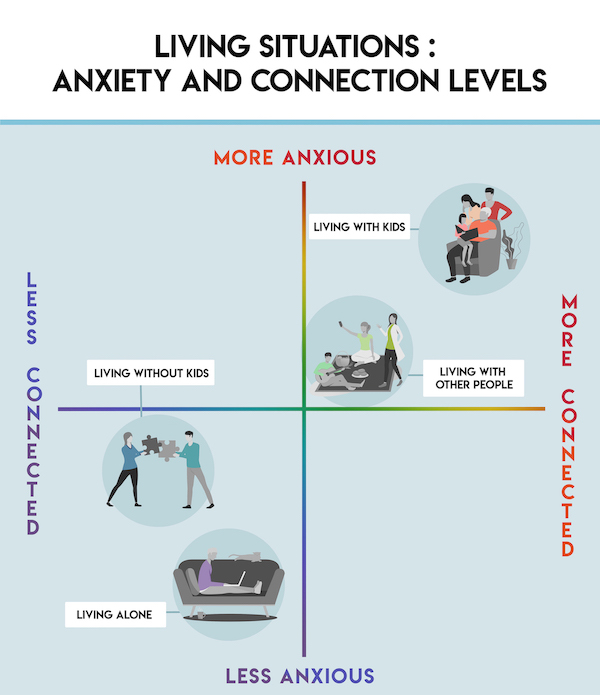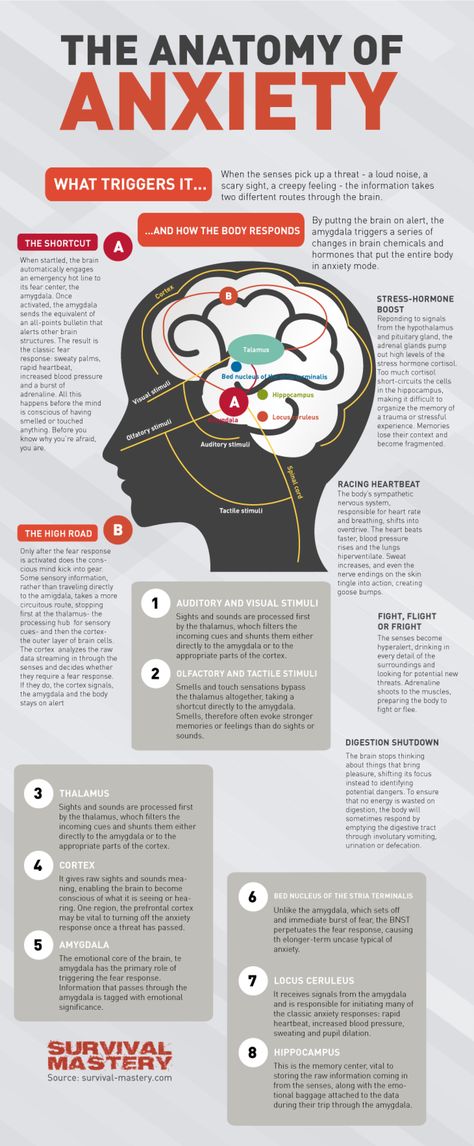Narcissistic rage projection
How Do Narcissists Use Projection To Manipulate Their Victims?
Narcissists use projection to confuse and manipulate you
Narcissists can’t accept responsibility for anything that goes wrong. So if something isn’t working, and they want control over the situation, they literally put their feelings on you. So it doesn’t matter what you really think or what you’ve done, narcissists will turn whatever you say or think or do against you.
Why are narcissists so negative and hurtful
It’s a form of control and manipulation. Narcissists can’t let other people be independent because it challenges them, makes life inconvenient, and uncomfortable, so they do everything they can to gain control. One powerful technique is projection. Since narcissists live in fantasy worlds, they refuse to see their own faults and failures, which means the blame that would usually be placed on them is projected onto their victims. When narcissists use projection, it’s just another way to manipulate their targets.
What Is Projection?
We all use projection in one way or another. For example, let’s say you’re in a great mood, but your friend isn’t. You continue to smile and maintain your positive mood, projecting it onto your friend. Or, another form of projection could be if your partner is in a bad mood, sees that you’re smiling and happy, and they start yelling at you for being cheerful. Your partner is then projecting their poor attitude onto you.
With narcissists, they project any blame you may place on them, back on to you. If they’re in a bad mood, they’ll deflect the accusation and blame you for their mood – perhaps they’ll say something along the lines of, “I’m in a bad mood? You’re the one in a bad mood. You just can’t see past your own bad attitude.”
How Narcissists Use Projection And What You Can Do
1. Narcissists Use Projection To “Call You Out”
Usually, narcissists will use this tactic to either get you to do something they know you’ll be hesitant about, to attack you, or both. They’ll call you out, for example, not having tea ready for them after a long day at work – even though you worked the same hours. This usually entails guilt-tripping. If that doesn’t work, they’ll escalate to verbally attacking you.
They’ll call you out, for example, not having tea ready for them after a long day at work – even though you worked the same hours. This usually entails guilt-tripping. If that doesn’t work, they’ll escalate to verbally attacking you.
Dealing with projection and blame: It’s hard not to fall for this kind of malignant narcissism. You’ve probably been around your narcissist long enough to recognize a trap when you hear him/her getting started. It’s just a way to assert power manipulate your feelings and actions. Can you step it down or take a time out.
2. Narcissists Mimic Emotions
Narcissists have the emotional range of a thimble. But they’re intelligent. They know how important emotional displays are to others and they know how to mimic them to manipulate their victims. Don’t let those crocodile tears fool you. They’ll pretend to understand your feelings or want to help you. It’s not true.
What you can do: You’re onto them now, right? Be aware.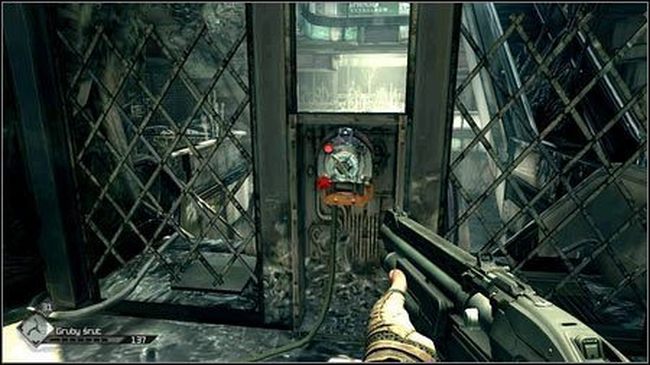 Sooner or later, you will find ways to evade, and even escape.
Sooner or later, you will find ways to evade, and even escape.
No one likes to be verbally attacked – but when the question of your personality and character are brought into the mix, you know the narcissist means business. It’s getting personal. This is usually done for revenge.
What you can do: This is always designed to make you defensive and need to explain yourself. You don’t have to. Remember that narcissists are toxic people and almost always engage in toxic behavior and abusive relationships. They will lie and say anything to manipulate those around them.
4. Narcissists Use Projection To Play The VictimNarcissistic projection makes you feel sorry for him. It’s never his or her fault that terrible things happen. You can’t blame a victim – right? They’re the ones who were wronged. The narcissists believes they’re perfect, so clearly anything wrong in their relationships isn’t because of their behavior. They love to be the victim. On top of projecting blame onto someone else, they also grab the spotlight while others help them.
They love to be the victim. On top of projecting blame onto someone else, they also grab the spotlight while others help them.
Dealing with narcissistic projection of victimhood. If you’re an empath, pay special attention to the kind of people you choose to help. Look for the lies and gaps in a narcissist’s story. Empaths and narcissists tend to be attracted to each other, and empaths are always the losers.
5. Narcissists Know When To Drop The ActWhen narcissists know they have their target-turned-victim under their thumbs, they drop their charming acts. And quickly. This allows narcissists to assert dominance and really display their narcissistic traits. At this point, the victim will have a last, slight chance to escape and expose a narcissist before having to deal with even greater damage if choosing to stay in the abusive relationship.
What you can do: If you catch on to this final stage, don’t expect an easy escape. Narcissists don’t like to admit defeat and will do anything to keep their victims under their control. They’re manipulation experts. Have steps set up to help yourself get away to safety.
Narcissists don’t like to admit defeat and will do anything to keep their victims under their control. They’re manipulation experts. Have steps set up to help yourself get away to safety.
**If you are in an abusive relationship or someone you know is, call the 24-hour National Domestic Violence Hotline at 1-800-799-723. For more information, click here.
For tips to escape a narcissist, visit the article below:
If you love ROR content:
Check out 100
Tips For Growing Up
Follow us on Instagram
Like us on Facebook
Comment on our posts
abusive relationships, empath, escape a narcissist, escaping a narcissist, expose a narcissist, healing from narcissistic abuse, narcissistic abuse, narcissistic projection, narcissistic traits, self awareness, toxic behavior, toxic people, toxic relationships, when narcissists use projection
5 Ways Narcissists Project and Attack You
Most narcissists generally lack self-awareness.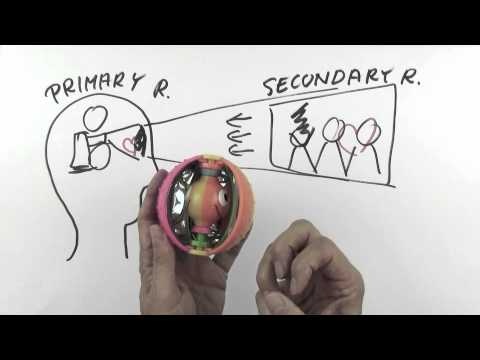 Indeed, their sense of self-esteem and self-worth depends on how others perceive them, and they tend to deny flaws in themselves and blame others for their own shortcomings, mistakes, and misfortunes. This is called projection, and people with narcissistic tendencies are projection-heavy individuals.
Indeed, their sense of self-esteem and self-worth depends on how others perceive them, and they tend to deny flaws in themselves and blame others for their own shortcomings, mistakes, and misfortunes. This is called projection, and people with narcissistic tendencies are projection-heavy individuals.
Here we will explore five different but related ways people with strong narcissistic, sociopathic and psychopathic tendencies deny, project, blame, confuse, and hurt others.
1. Calling you things that you are not
A classic example, Youre cheating on me,when you are not, but you can bet theyre cheating on you.
Or, Youre selfish because you dont want to do what I am asking you to do. You only think about yourself.Meanwhile they are the ones who constantly make up excuses, break promises, are unreliable, think only about themselves, or compete with you. Not only that, they will forget all the things that you have already done for them.
In their eyes, they are entitled to your resources (time, money, energy), and you are aggressing against them when you wont, cant, or dont give them what they want. They will not reciprocate unless there is some reason for them to. They will use various manipulation and abuse tactics like name calling, mocking, bullying, triangulation, minimizing, character defamation, berating feelings, trolling, obscuring the issue, deflecting, gaslighting, guilt-tripping, provoking, unreasonable criticism, nitpicking, or plain verbal abuse all to make you feel bad and give into their demands.
They will not reciprocate unless there is some reason for them to. They will use various manipulation and abuse tactics like name calling, mocking, bullying, triangulation, minimizing, character defamation, berating feelings, trolling, obscuring the issue, deflecting, gaslighting, guilt-tripping, provoking, unreasonable criticism, nitpicking, or plain verbal abuse all to make you feel bad and give into their demands.
If its not you, then theres always someone else. Look how horrible this other person is! And do you know what that person did? Meaning, forget about me and my shortcomings; lets find someone else with flaws and talk about them. That way, in their mind, we don’t have to think about my shortcomings, or we will come to a conclusion that Im great by default because everyone else is so horrible.
2. Grandiosity, mimicking, and exaggeration
Narcissists think that they are super-ultra-turbo-mega special, that they deserve exceptional treatment, or that they are justified in hurting others. They have grandiose goals and exaggerate their achievements to appear more impressive and more superior.
They have grandiose goals and exaggerate their achievements to appear more impressive and more superior.
Narcissists often feel a need to compete with others since they are factually not that special and terribly insecure on top of it. They will pretend, lie, hurt or exploit others, or do whatever else they deem necessary for personal gain.
As a result, they may take upon other peoples character traits and achievements. This originates from a place of envy and self-aggrandizement. Often to the degree of mimicking, plagiarizing, stealing, and being a fraud, all while defaming and belittling others. This is meant to destroy the credibility of their victims while appearing to be more competent themselves. This provides a handy distraction from what is really going on.
This is another weird form of projection where they see something they admire in someone (be it actually admirable or just a status symbol), and then instead of actually working on achieving it they simply claim they already have it or that they are entitled to it. Usually simply by saying it, with confidence and conviction. Consequently, as they claim the positive traits, achievements or characteristics of others, they discard their own negative features onto their victims. They may or may not be aware that it is happening, but it is happening nevertheless.
Usually simply by saying it, with confidence and conviction. Consequently, as they claim the positive traits, achievements or characteristics of others, they discard their own negative features onto their victims. They may or may not be aware that it is happening, but it is happening nevertheless.
This whole process requires a lot of delusion, pretending, and deception. Sadly, many people fall for that and see the narcissist as this wonderful and amazing human being that they present themselves as, yet in actuality are lightyears from.
3. Preemptive strike
Whenever a narcissistic person feels threatened, they will call you the things that they themselves are as or are afraid that others see them as. And then they will try to stalk you, slander you, or discredit you. They will try to sabotage and destroy you. They will start a smear campaign and attempt character assassination. In their mind, frighteningly, you have become their mortal enemy.
They also have no problem doing all of it preemptively and calling it defense.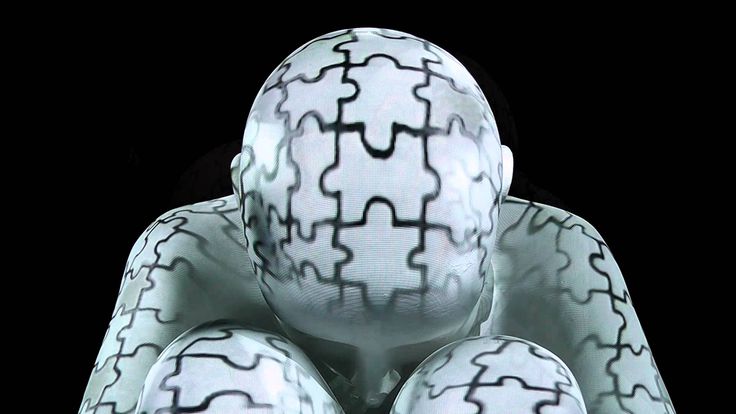
So if you privately call them out, set healthier boundaries, or end the relationship, they may be afraid that you can see their flaws, or that you will tell others what kind of person they are. Whether you do that or not is not important to them. Because in their mind the mere possibility of it is a good enough excuse to label you as an enemy. And because a narcissistic type of person has little or no empathy, they may imagine that you will behave as they would in these situations. If they would lie, or more likely are already lying, they will accuse you of lying.
And so they will do all these things just because they think you are somehow trying to or might hurt them. They also will accuse you of the very things they themselves are doing.
4. Playing the victim
A common narcissistic strategy is to play the victim. You hurt me! Poor, poor me. Instead of working through the issue with you or internally, they have no problem dragging others into it by lying and painting you as the perpetrator and themselves as the victim.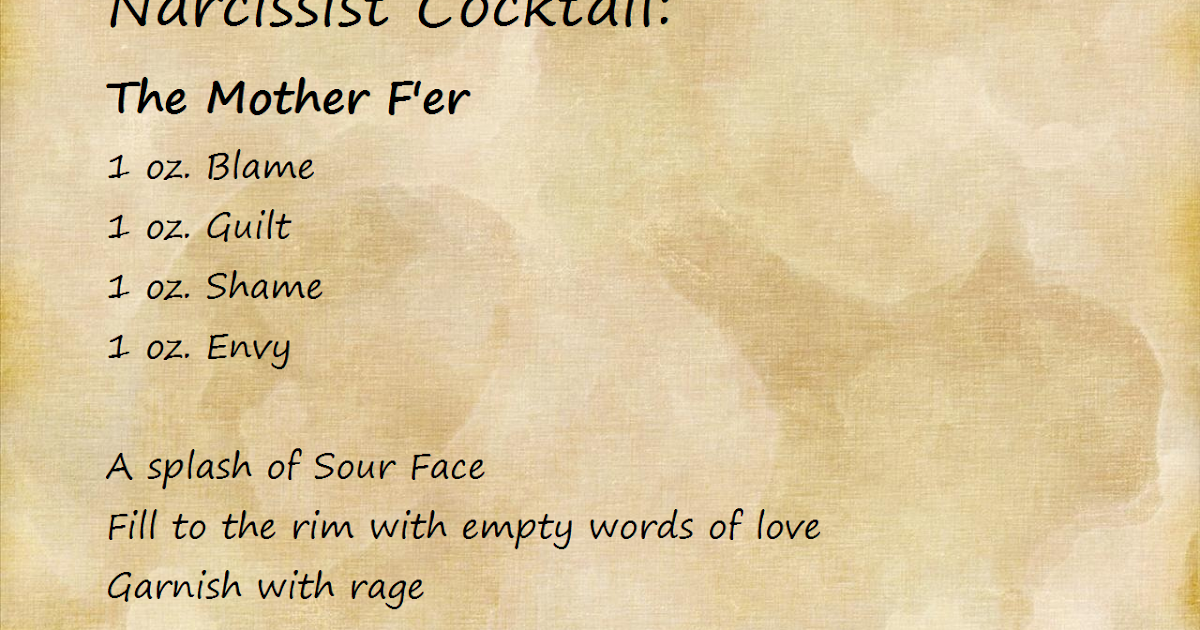
Oftentimes, this involves the aforementioned preemptive strike or provoking to get a reaction. For example, destroying your property, slandering you, turning people against you, or physically attacking you. And then when you respond appropriately to their active or passive aggression, now they can say that youre the aggressor because you are hurting them or that youre unreasonable because of your wild, unacceptable behavior.
Its callous and calculated, and again, it involves accusing you of the things that they themselves are doing or have done. So its not uncommon that the audience of this dramatic spectacle doesnt see the whole picture or doesnt care enough to figure out the full story. It is not uncommon that many will take the side of the narcissist. The narcissist is desperate that their spectacle be believed for the sake of their emotional management, so much so that they will say and do almost anything.
For a narcissist, it is rarely about the truth and almost always about their audiences perception.
This way they receive false validation that they are right and good, and that you are wrong and evil. Here, their sense of self-esteem is restored and their feelings of shame and inadequacy are managed. So its all well and good. Except for those who got hurtbut who cares about them, right?
5. The No, you! defense
If you call them out on their crap or if they suspect you can see through their smoke and mirrors, they will say that its youor otherswho are all these things. Or that all of it is false and nonsense. They may even say that they are honest, caring, and authentic, and that you dont understand these things, you are projecting, you are pretending, you are triggered, you are gaslighting,you are narcissisticyou are whatever buzzword they have learned!
Because people with narcissistic tendencies can be interested in human psychology, too. A lot of them actually work in the helping, teaching, and medical fields or pretend to be experts and intellectuals on social media. Some of them are really smart, eloquent, and popular, which makes their statements more believable to an unaware audience.
Some of them are really smart, eloquent, and popular, which makes their statements more believable to an unaware audience.
They can learn all these fancy terms and phrases, yet they often dont understand or even care about how to apply them correctly. Here, its another tool for manipulation. For them, learning means finding ways to justify all of their disturbing thoughts and behaviors, or use the knowledge as a tool against others for personal gain.
They will do anything but accept reality and become a decent personyet they can play one quite well.
Have you encountered any of these things when dealing with narcissistic people? Did you notice anything that was not included in this list? Feel free to share it in the comments below or write about it in your personal journal.
Narcissistic Rage - frwiki.wiki
Narcissistic Fashion is a term coined by Kohut in 1972 and refers to a reaction to a narcissistic wound perceived as a threat to self-esteem. Narcissistic wound (or narcissistic scar ) is an expression used by Sigmund Freud in the 1920s; Moreover, narcissistic injury and narcissistic strike are almost interchangeable terms.
Narcissistic wound (or narcissistic scar ) is an expression used by Sigmund Freud in the 1920s; Moreover, narcissistic injury and narcissistic strike are almost interchangeable terms.
Narcissistic trauma occurs when the narcissist feels that his "real self" has been revealed. This can happen when the narcissist experiences a drop in reputation, such as when his or her hidden actions or motives are exposed, or when their authority is questioned. Narcissistic trauma causes distress and can lead to behavioral dysregulation, such as narcissistic rage.
Narcissistic rage is continuous, ranging from simple withdrawal, to expressions of irritation or mild discomfort, to violent outbursts, including violent or even fatal attacks. Narcissistic rage reactions are not limited to personality disorder, but can also be found in catatonia, delusional disorder, and depressive episodes. It has also been suggested that narcissists have two levels of rage, the first one can be seen as constant anger (directed at someone else) and the second as anger directed at oneself.
Summary
- 1 Freud and narcissistic strokes
- 2 Other psychoanalytic developments
- 3 Kohut and personality psychology
- 4 Perfectionism
- 5 In therapy
- 6 Overview
- 7 Cultural references
- 8 links
- 9 Further reading
- 10 External links
Freud and the narcissistic strokes
In his 1914 case study "The Wolf Man", Freud identified the cause of the neurosis when "he was forced to realize that his gonococcal infection was a serious injury to his body. The blow to his narcissism was too much for him and he fell apart.” A few years later, at in Beyond the Pleasure Principle Concerning the Inevitable Failures of Childhood Sexuality, Freud argued that "Loss of love and failure leave a wound that takes the form of a scar. Narcissistic character, reflecting the degree of contempt he felt. Suffered ". In 1923, he added that "the child gets an idea of what a narcissistic wound is by experiencing the loss of the mother's breast after suckling it, and shedding her feces daily". - the loss will come next inciting the castration complex when "this idea of loss was associated with the male genitalia"; and at 19In 25, he added regarding penis envy: “after a woman realizes the wound of her narcissism, she develops a feeling of inferiority in the form of a scar.”
- the loss will come next inciting the castration complex when "this idea of loss was associated with the male genitalia"; and at 19In 25, he added regarding penis envy: “after a woman realizes the wound of her narcissism, she develops a feeling of inferiority in the form of a scar.”
Other psychoanalytic developments
Freud's concept of "the first traumas of the self (traumas of narcissism)" has been expanded by many psychoanalysts. Karl Abraham saw the key to adult depression in the childhood experience of a blow to narcissism due to the loss of a narcissistic source. Otto Fenichel confirmed the importance of narcissistic wounds in depression and expanded his analysis to include borderline personalities.
Edmund Bergler emphasized the importance of childhood omnipotence in narcissism and the anger that follows every blow to this feeling of narcissistic omnipotence; Annie Reich has pointed out that shame fuels anger when a blow to narcissism reveals a gulf between the real ego and the idealized ego; whereas Lacanists associate Freud's concept of narcissistic trauma with Lacan's mirror stage.
Ultimately, object relations theory emphasizes the importance of anger over early environmental failures that made patients feel bad when childhood omnipotence went downhill.
Kohut and the psychology of personality
Kohut explored a wide range of anger experiences in his paper "Thoughts on Narcissism and Narcissistic Rage" (1972). He saw narcissistic anger as the main form in contrast to aggression. Since the self structure itself is weakened in the narcissist, rage cannot develop into true self-confidence, giving way to hypersensitivity to imaginary or imaginary narcissistic wounds.
For Kohut, narcissistic rage is associated with the need for complete control over his environment, in particular "the need to take revenge, correct the mistake and eliminate the trauma by any means." The process of victimization is used by the narcissist to hurt others while at the same time trying to reclaim his own (actually false) sense of Self. He can also use self-defense and preservation, along with his anger, serving to restore a sense of security and strength by destroying what threatened him.
On the other hand, according to Kohut, anger can be seen as the result of shame in the face of failure. Narcissistic rage is uncontrolled and unexpected anger resulting from narcissistic trauma; a threat to the narcissist's self-esteem or value. Rage comes in many forms, but they all involve the same thing: revenge. Narcissistic rage is based on fear and will continue even after the threat is gone.
The narcissist's rage is directed at the person who, in his opinion, despised him; other people see rabies as inconsistent and unfair. This rage impairs their cognition, thereby impairing their judgment. When in a rage, they tend to scream and slander. In his book "Self Analysis" Kohut explains that narcissists may even seek conflict in order to find a way to alleviate their pain or suffering.
Perfectionism
Narcissists are often pseudo-perfectionists and need to be the center of attention; thus they create situations in which they will receive this attention.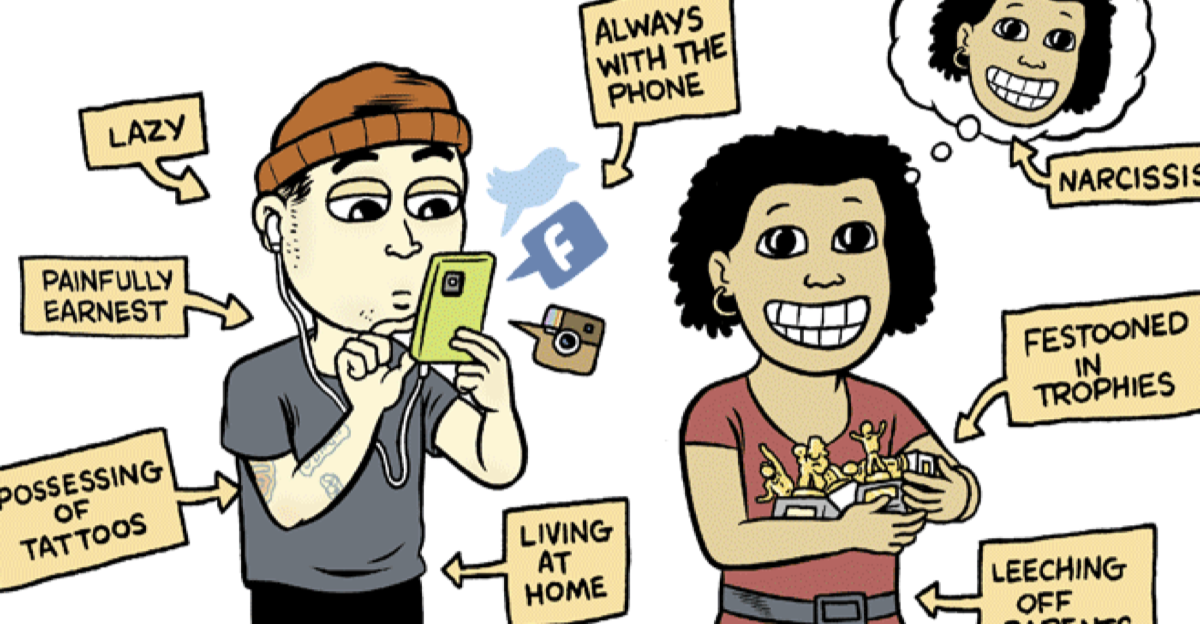 The narcissist's attempts to be perfect are tied to their grandiose self-image. A state of unsatisfied perfection can lead to guilt, shame, anger, or anxiety because the subject believes they are losing the admiration and love of others.
The narcissist's attempts to be perfect are tied to their grandiose self-image. A state of unsatisfied perfection can lead to guilt, shame, anger, or anxiety because the subject believes they are losing the admiration and love of others.
Behind such perfectionism, the psychology of the self sees previous traumas leading to megalomania.
In therapy
Adam Phillips argued that therapeutic healing involves getting the patient to go through the "terrible narcissistic wound", the experience of a child excluded from parental covenant, in order to come to terms with it.
Critical
Widespread dissemination of Kohut's concepts could lead to their trivialization. Neville Symington notes that common phrases such as "Oh, I'm very narcissistic" or "My narcissism has suffered" do not capture the reality of what the condition actually is.
Cultural references
The protagonist of Citizen Kane is said to display narcissistic anger. Sam Vaknin, Malignant Self-Love: A New Look at Narcissism (1999).
Sam Vaknin, Malignant Self-Love: A New Look at Narcissism (1999).
 218
218  10
10 further reading
Books
- Cooper J. and Maxwell N. Narcissistic wounds: clinical perspectives (1995)
- Levin, JD Slings and Arrows: Narcissistic Injury and Its Treatment (1995)
Academic work
- Horowitz M.J. and Arthur R.J. Narcissistic Rage in Leaders: The Intersection of Individual Dynamics and Group Process - International Journal of Social Psychiatry, Summer 1988; 34 (2) pages 135-41
- Terman D.M. Aggression and Narcissistic Rage: A Clinical Development - Yearbook of Psychoanalysis 3:239-255 (1975)
External Links
- Panos Alupis, Narcissistic Trauma
- Agnes Oppenheimer, Narcissistic Fury
- Narcissism
| Narcissism | |
|---|---|
| Types | Mischievous Narcissism Delusions of Grandeur Narcissistic Personality Disorder |
| Features | Betrayal Boasting Egocentrism Empathy Jealousy Fiction Megalomania Hybris Magical Thinking Metrosexual Mental Manipulation Narcissistic Abuse Fury Narcissistic Eating Narcissistic Grooming Perfectionism Self Esteem Shame Prestige Superficial Complex Self Superiority Vanity |
| Narcissistic defenses | Disclaimer · Projection · Splitting me |
| Cultural events | Control Freak Dorian Gray Syndrome |
| Related Articles | Codependency · Counter-dependency · Black Triad · Ego-Ideal - Ego-Ideal · God Complex · Messiah Complex · Micromanagement · Narcissism of Small Differences · Narcissistic Leadership · Parent Narcissist · Inventory of the Narcissistic Personality · Narcissist · Na Narcissism · Waknin · Self-Esteem · Addiction to Self-Satisfaction · spoiled child · culture of narcissism · prejudice · narcissistic perversion |
 manipulate us
manipulate us 
 Thus the manipulator evades from admitting guilt and responsibility for the consequences.
Thus the manipulator evades from admitting guilt and responsibility for the consequences. 
 it is done in order to discredit, distract and upset you, take you into side of the main topic and make you feel guilty about what you - a living person with real thoughts and feelings that dare to be different from theirs own. In their eyes, the problem is your existence.
it is done in order to discredit, distract and upset you, take you into side of the main topic and make you feel guilty about what you - a living person with real thoughts and feelings that dare to be different from theirs own. In their eyes, the problem is your existence.  Narcissists sadists and sociopaths resort to a sophism called "changing the rules games" to ensure that they have every reason to be constantly dissatisfied with you. This is when, even after you have provided all sorts of evidence in support of their argument or took all possible measures to satisfy their request, they present you with a new requirement or want more evidence.
Narcissists sadists and sociopaths resort to a sophism called "changing the rules games" to ensure that they have every reason to be constantly dissatisfied with you. This is when, even after you have provided all sorts of evidence in support of their argument or took all possible measures to satisfy their request, they present you with a new requirement or want more evidence.  He is driven desire to make you feel that you must continually strive to earn it OK.
He is driven desire to make you feel that you must continually strive to earn it OK.  In their understanding, only they are always right, and anyone who dares to say otherwise, inflicts a narcissistic injury on them, leading to narcissistic rage. According to Dr. Mark Goulston, narcissistic rage is the result is not low self-esteem, but rather self-confidence infallibility and a false sense of superiority.
In their understanding, only they are always right, and anyone who dares to say otherwise, inflicts a narcissistic injury on them, leading to narcissistic rage. According to Dr. Mark Goulston, narcissistic rage is the result is not low self-esteem, but rather self-confidence infallibility and a false sense of superiority. 





